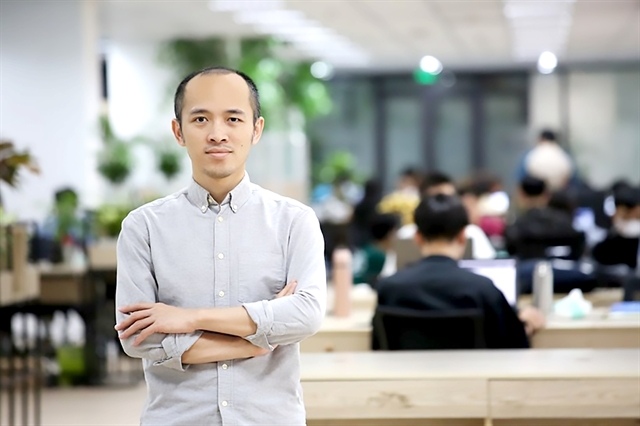.jfif) Opinion
Opinion

 |
| Vũ Ngọc Sơn, Head of Technology at the National Cybersecurity Association and Chief Technology Officer at NCS Company. VNA/VNS Photo |
HÀ NỘI — As cyberattacks hit businesses and Government agencies with increasing frequency, artificial intelligence (AI) is stepping up as a vital line of defence in Việt Nam. Vũ Ngọc Sơn, Head of Technology at the National Cybersecurity Association and Chief Technology Officer at NCS Company, spoke with Tin tức và Dân tộc (News and Ethnic Affairs) newspaper about this pressing issue.
How is AI currently being applied in cybersecurity in Việt Nam?
AI is helping detect anomalies through log analysis, malware analysis and reverse engineering and vulnerability scanning.
If only humans were involved, finding a cybersecurity vulnerability could take up to two weeks. Now, with AI, it takes just about five minutes. Discovering vulnerabilities is both a challenge for cybersecurity experts and a testament to their skills.
Today, large enterprises have set very high cybersecurity requirements. Security testing systems typically operate for only about a week before going live, making AI adoption inevitable. AI is particularly effective at automating processes and identifying user behaviour patterns.
What challenges come with using AI?
When it comes to AI, everyone sees and understands it differently.
Many businesses and organisations are experimenting with AI and experts themselves hold mixed views. Some see it as a breakthrough, others as immature. Much depends on the approach and the quality of AI’s output.
We still lack a complete picture of AI’s benefits and risks. The biggest challenge remains human factors. AI is heavily dependent on the skill of its users. Some experts even call it a digital twin of its operator or a tool that amplifies human knowledge.
One current gap is that cybersecurity experts are not necessarily data science experts and vice versa. In Việt Nam, there are very few professionals proficient in both fields. I have invited international AI experts to Việt Nam for support and they have all stressed that cybersecurity experts need at least a basic understanding of AI to implement effective solutions. This shows that humans still play a decisive role in AI adoption.
From a technology standpoint, most of the AI models we are using are adapted from foreign platforms. Their training data is a 'black box' that we cannot fully understand. To ensure reliability, we must retrain these models locally and verify their results.
Financially, we face limitations in funding research labs, hiring top talent and sustaining long-term projects. Some businesses find AI promising during trials but run into obstacles when deploying it in real-world settings, making them hesitant to invest further.
Who can truly harness AI in cybersecurity?
There are two sides in this field: defenders and attackers. Defenders use AI to detect anomalies, develop security solutions and automate processes. Attackers use AI to discover and exploit vulnerabilities, test systems, automate attack stages and conceal traces.
From both perspectives, AI is critical. Whoever deploys it more effectively will dominate the game.
In reality, most attack groups are well-funded and currently hold the advantage. On the other side, enterprises and organisations are increasingly investing in AI-powered defences to boost efficiency.
However, Việt Nam faces a severe talent shortage. A 2024 survey by the National Cybersecurity Association of 3,000 businesses revealed that 20 per cent had no dedicated cybersecurity staff while 35 per cent had fewer than five employees in charge of security.
Cybersecurity monitoring needs to be done around the clock. With such limited manpower, it is difficult for these businesses to safeguard their systems effectively.
What solutions should businesses and organisations adopt?
In my view, the use of AI in cybersecurity must combine technology and human expertise to build a truly effective defence wall. We should only entrust full authority to AI when it proves to be highly reliable and its processes are clearly defined.
Therefore, everything must start with people. If professionals lack the expertise to use AI properly, they may unintentionally amplify vulnerabilities.
Investment in AI must go hand in hand with investment in personnel and processes. AI only creates value when it is in the hands of those who can truly master the technology.
AI is not a magic key without clear procedures and capable people. But it is becoming a competitive advantage, especially for large enterprises. — VNS




